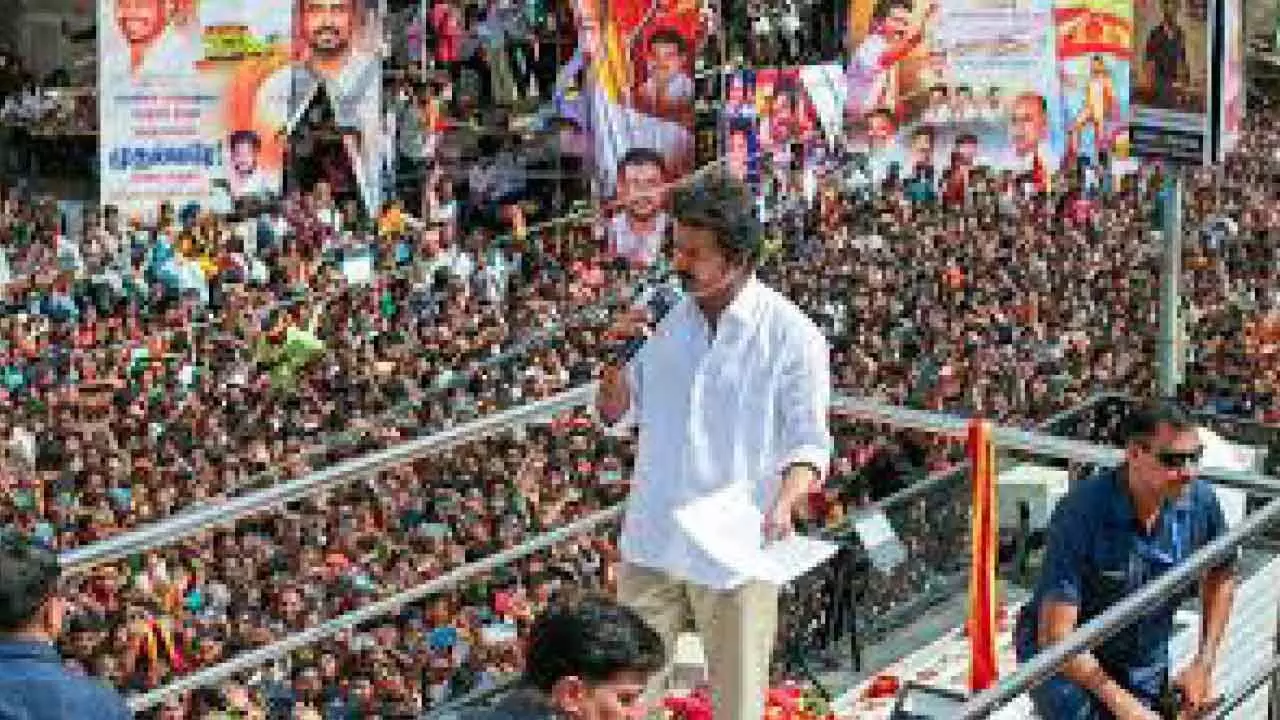India needs a dedicated law for crowd safety and stampede prevention
It’s high time that we fill this silent vaccum in our legal system
India needs a dedicated law for crowd safety and stampede prevention

The law could also look into introducing compulsory insurance-linked compensation, so that victims’ families are not left waiting for ad hoc government relief. By codifying these measures, India can move from a reactive to a preventive approach
It’s very common for us today to witness every few months in headlines from India carrying the same haunting words: “stampede kills dozens.” From film premieres to political rallies, victory parades and religious gatherings, uncontrolled crowds have claimed countless lives. Yet, India, the world’s largest democracy with some of the largest gatherings on earth, has no dedicated law to prevent stampedes. This silent vacuum in our legal system is costing precious lives for ages now.
Today, stampedes are prosecuted under general negligence provisions only . The Bharatiya Nyaya Sanhita (BNS) 2023, successor to the Indian Penal Code, includes Sections 304A, 336, 337, and 338—all designed for negligent acts. These laws may punish individuals after tragedy, but they provide no framework for prevention or mitigation of stampede.
Further the Disaster Management Act, 2005 and the National Disaster Management Authority (NDMA) guidelines do mention crowd control. However, these remain recommendatory, not binding. The result? Organisers, police, and local authorities often operate without clarity on roles, standards, or accountability. When disaster strikes, blame is passed around, but systemic reforms are rarely implemented.
Recently, nation was moved again on the loss of 40 precious lives at a rally for actor-politician Vijay in Tamil Nadu, when crowds surged toward his campaign vehicle. Disorganised crowd management, poor planning, and sweltering heat magnified the disaster with blame game on between politicians and parties.
In December 2024, the much-anticipated Pushpa 2 premiere in Hyderabad turned chaotic when fans rushed to see actor Allu Arjun and a woman lost her life, and her son suffered critical injuries.
Just months earlier, in January 2025, over 30 pilgrims died at the Mahakumbh in Prayagraj, despite the deployment of thousands of security personnel. The bottleneck at the Sangam proved fatal, as panic and pressure cascaded through the crowd.
So many Instances like the deaths at the New Delhi railway station and at the RCB victory rally in Bengaluru on win of the IPL season 2025. Each of these tragedies have the same script in common of chaos, death, inquiry, compensation, and silence with no punishment and conviction until the next incident.
India urgently needs a dedicated statute on crowd safety and stampede prevention where stampede is defined as a distinct legal category with defined Acts and rules .
The statute should establish strict liability for organisers and contractors whose reckless planning endangers lives along with pinning down enforcement officials and public for their own negligence and threat to fellow citizens.
While law enforcement is one aspect of alleviating the stampede but also technology can play a vital role to prevent and analyse stampedes before and after occurrence.
Installation of mandatory real-time crowd density monitoring using AI and surveillance systems with crowd heat maps with codes for mapping and taking necessary action on red.
The law could also look into introducing compulsory insurance-linked compensation, so that victims’ families are not left waiting for ad hoc government relief. By codifying these measures, India can move from a reactive to a preventive approach.
To conclude, our current system treats stampedes as accidents. But in a nation where religious faith, cinema, sports and politics regularly draw lakhs of people, these are not accidents—they are predictable risks which requires defined laws and technology to solve this silent vacuum.
If India can legislate on cybercrime, environmental hazards, and road safety with precision, it can and must legislate on stampede prevention too. Its high time we take action. Until then, the law will always arrive too late after precious lives have been crushed under unmanaged crowds and haphazard planning by organisers and administration.
(Author is Head Legal& IPR Resolute Group & CEO Resolute IP services LLP)

